Ari van der Ent – Dutch translator, Slavist, poet and writer, publisher.
Andriy Kurkov – writer, journalist and screenwriter, translated into 37 languages and published in 65 countries. The President of PEN Ukraine
Somewhere I read, I don’t know where and when, that you started collecting cactuses. So it stayed in my mind because I knew about stamps, but cactuses... It was the first time when I read about that. Where did you get it from?
I started, actually, with stamps, but I love collecting. I still have my collections of stamps, of coins, of matchbox labels, the badges from different cities. I think I was maybe 7 years old when I got interested in cactuses. I don’t exactly remember why, but I liked them because they were exotic and it seemed that people didn’t like them very much. I mean it was my desire to be kind to abandoned exotic plants, but also I quickly understood that there is some kind of organized community which is fond of cactuses. And I became a member of the Kyiv Club of Cacti Lovers, which was part of the Kyiv Club of Nature and, as far as I know, it still exists today. The cacti lovers got together every week, they were selling each other seeds of different cacti, and someone was always obviously illegally bringing the plants which didn’t exist in The Soviet Union. Then there were discussions about new kinds of cacti, and of course there was literature to buy — books with photocopies. The most beautiful books about cactuses were published in Eastern Germany, so I still have two beautiful color photo albums with cactuses from there.
And you started to be a full member?
The membership was informal — you just come, smile, say that you want to be a member, and that’s it. I was going there every week. First with my father — he was giving me money to buy seeds. Then I understood: in order to grow cacti from seeds, you need to be very careful because you have to create some micro greenhouses, and you have to use a lot of antiseptic to fight different fungi on the soil. I was preparing soil for the seeds. I was actually keeping this soil on top of the boiling water to disinfect it. It was something I got from the books — something I got from the gatherings.
My mother was a doctor, and I realized that some boxes from imported medicine were ideal for growing cactuses for the first phase because once a cactus is grown and becomes a millimeter or two big, you could separate them and put them in separate boxes. It’s a very difficult process: you have to watch them every hour. I think I was completely absorbed by cactuses. Then I did some experiments with them: I tried to create hybrids, to do the botanical surgical operations when you attach a rare cactus, which is fragile, to a more solid one, which has no rare name.
Also l made very strange friends in that club. One of my cacti lovers' friends was an opera singer, and it’s interesting because he wanted to sell seeds not through the club, but directly. It was additional money for him, and he had a good collection. I visited him from time to time. Then it was a professor of mathematics from Kyiv Polytechnic University, who lived in the city center, and it was funny because he was friendly to me. He was showing me cactuses, selling me seeds. And many years later I spoke with someone from Polytechnic, and I said, “We were good friends with this professor”, and one student said, “Oh, he was a very nasty man, nobody loved him”. So it was clear that he loved cactuses and cactuses loved him, but he didn’t have a good connection with the other world.
I had hundreds of different types of cactuses, but very often they died, and I had to buy new one or exchange them, so cactuses became the currency. I put shelves on all the windows, metal shelves, where I was putting square, plastic cubics from the toy shop, where I was cutting one side and making holes in the bottom, filling them with soil, and putting them on the shelves. So all the windows, except the kitchen, were covered with shelves and filled with the cactuses. My parents did not protest.
There was one story about cactuses. When my brother started earning money, he thought that he would invest his money in cactuses by buying and selling rare cactuses. I took his money, bought a lot of seeds, and planted them. I was looking after them until some point. Then I was distracted by a girl, and most of the tiny cactuses died. My brother was very angry because it was a financial failure.
In the summer I was putting most of the cactuses on the balcony. When I was 17, I decided to go to Riga, and left the message for my parents: if it is cold outside, take them back inside. But, they forgot and a lot of the cactuses got frozen.
It was the end?
No, several cactuses survived until now because they remained in my parents' flat, and my mother was looking after them. Then, when my parents died, I took all the remaining cacti to our flat, and now they are with me. There is a cactus which is only 7 years younger than me. We are reunited now.
This is a kind of exotic element of life in your young years. Speaking about your writership, is there also some exotic element in your stories?
Yes, but what was also important, is that because of cactuses I started learning botanical Latin, and I learned the cactuses' names in Latin. It was the beginning of my interest in foreign languages. I always wanted to use botanical Latin in my novels, and in the end I did use it — in the novel Mister Michurin’s Gardens. I loved this novel, but never thought that readers would enjoy it. Some readers did enjoy it and wrote to me that it’s the best novel of mine, but this is the novel for crazy people with a good sense of humour.
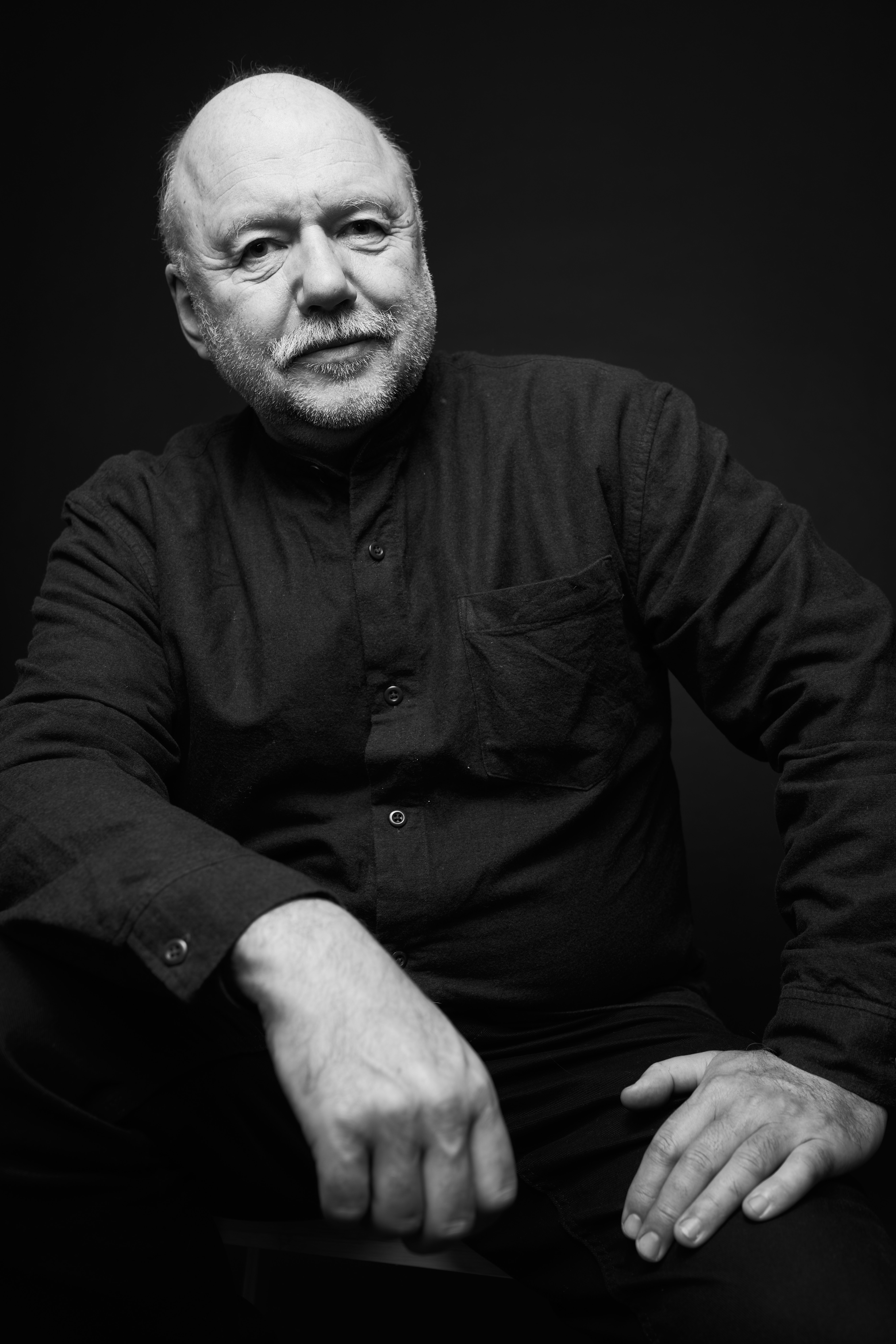
So it had a follow up?
Yes, it wasn’t about cactuses, but I did use botanical Latin, and Michurin of course loved botanical names of the plants and that stuff.
Is that also connected in order to write, when you started getting interested in foreign languages or is that a totally different thing?
It’s not totally different because when I started learning English myself, I was trying to write poetry in English. I wrote a lot of poems in English, and then I stopped; then I was learning Italian and was trying to write in Italian, but generally I started writing poems when I was a child — when I was 7 or 8.
Did you want to be a writer at this age?
I can’t say I wanted to be. In school we used to write compositions — essays. I was writing all my essays as poems. Even my exam essay at the end of my school term I wrote in the form of a long poem. My teacher of Russian language and literature was supporting me very much. A couple of times she brought ancient books, which weren’t republished since revolutionary times. So I got very excited about Gumilev, Akhmatova, and Tsvetaeva. Later in the university there were the American writers' books from my professors.
So, you were always writing on your way.
Yes. I started writing prose when I was 14-15, but also I started writing prose partially because I started inventing jokes. This happened because my older brother Misha had friends, and they always met up in our kitchen drinking and sharing jokes and illegal literature. I liked it, and started reinventing the anecdotes: taking the characters that already existed in jokes, and creating new stories with them.
It’s quite a thing because as I know you hear it, but you never know where it came from. You actually made them, right?
I made them. I heard my anecdotes somewhere far away from Kyiv, and I was very happy. But then I thought maybe someone else created those anecdotes at the same time. The sense of Soviet intellectual humor was the same in Vladivostok, in Kyiv, and in Kishinev. So, also everywhere there were people who were writing poems, short stories, and jokes.
Sometimes people found the same directions, right? So there was also a formative aspect, and you already were writing fiction?
I think first I started inventing jokes, and very soon after that I wrote my first short story about my grandmother's funeral. The visual memory of that funeral always stays in my head. Then I started writing short novelas — slightly mystical ones. The age of 16 ended with a long story: semi mystical, semi-religious, and semi-surreal about the Soviet life.
This kind of combination always more or less stays?
Yes, I always use reality, surrealism elements, some elements of magical realism, and humor.
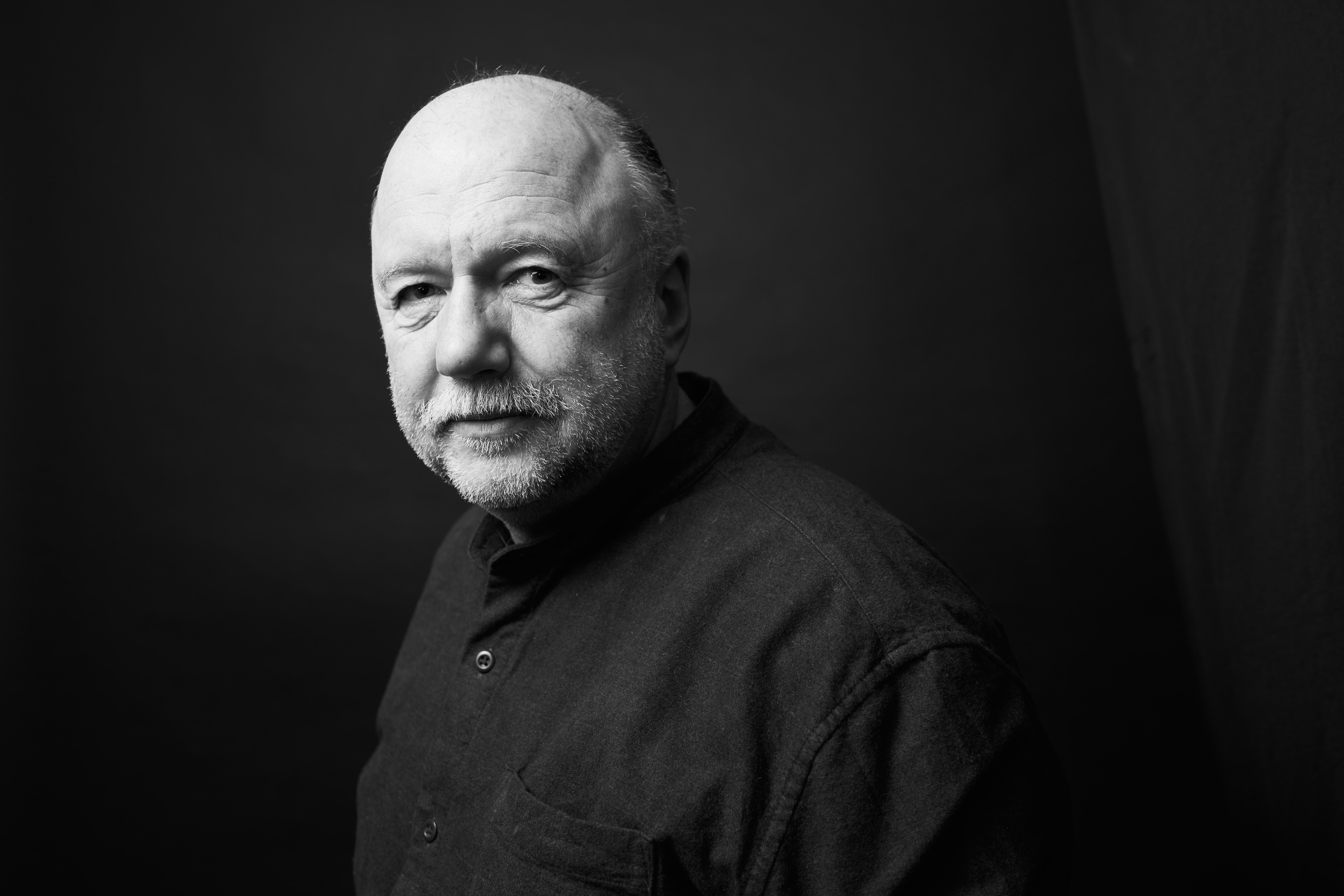
But because I know your latest works, I got the impression that nowadays they are not especially autobiographical.
No. I mean, in some novels I have episodes or stories from my life, but I never wrote something really autobiographical.
So, the element of creating has always been important for you.
Usually, when you write, you use imagination, invent events and people, or you can use your own experience. There are people who cannot write something that they did not experience themselves. But for me, writing invented stories was always more fun. For example, I was asked several times to write an autobiographical novel, and I refused. That’s because in some interviews I mentioned what happened to me, what I was doing, and then during some public events I was also telling the audience my brightest experiences in life. That’s why I was asked why I didn't write about it. And I just said that it’s too early to write.
But, for example, Dutch literature 95% is autobiographical.
The thing is I don’t believe in autobiographies because the person’s memory changes also. You think that you recorded what happened to you 50 years ago, and that you can even write about this. And then you ask those people who were witnessing it, and they say, “No, it was not like this. It was different”. And I had this experience recently because I have my audience in India, and I was asked by my Indian friends — Indian publishers — to write my memories about Soviet childhood. I published 11 big texts about my childhood, including about my parents, grandparents, and my brother. Then one episode I checked with my brother, and he said, “It’s not true, it didn’t happen”. Either he doesn’t remember, or he doesn’t want to remember, or it happened in different ways, or it was discussed like it happened. I think I will be able to write something like that, but it wouldn’t be a completely truthful story.
So there will be no author who will give 100% of the truth? That’s why you love inventing.
Yes, because I know it’s not true; it’s invented. I will not be able to treat the autobiographical text as documentary. It will be still in my imagination partially invented, or something I will not be able to check, which can provoke me to add more imagination, or more invented elements in this text.
Western literature is much more autobiographical. Do you think there is more tradition in Ukrainian and Russian literature inventing things than just writing what you think it was?
In Ukrainian contemporary literature, definitely invented stories are prevailing. Although I know a couple of short novels written by young writers, who were probably afraid of using their imagination, so they were, like, observing life and trying to describe it. But generally, we don’t have traditional autobiographical novels in Ukraine. Nonfiction literature is only now coming into fashion, but this is a very limited audience which exists in Ukraine for nonfiction literature. This genre is growing everywhere. It’s very important in America and takes a big chunk of the market — in Britain also, in France less, in Germany okay. But here it’s only starting.
Personally I prefer reading very good nonfiction now than fiction because when I start reading fiction, if it doesn’t catch me from the very beginning, I can just forget about this book.
Is it because you already read that much?
First you want fun for your first 40-50 years of life. You treat literature as a pleasant escape. And then at some point you can’t escape further. You had your overdose, so you’re looking for something authentic now like a book which brings you knowledge or understanding.
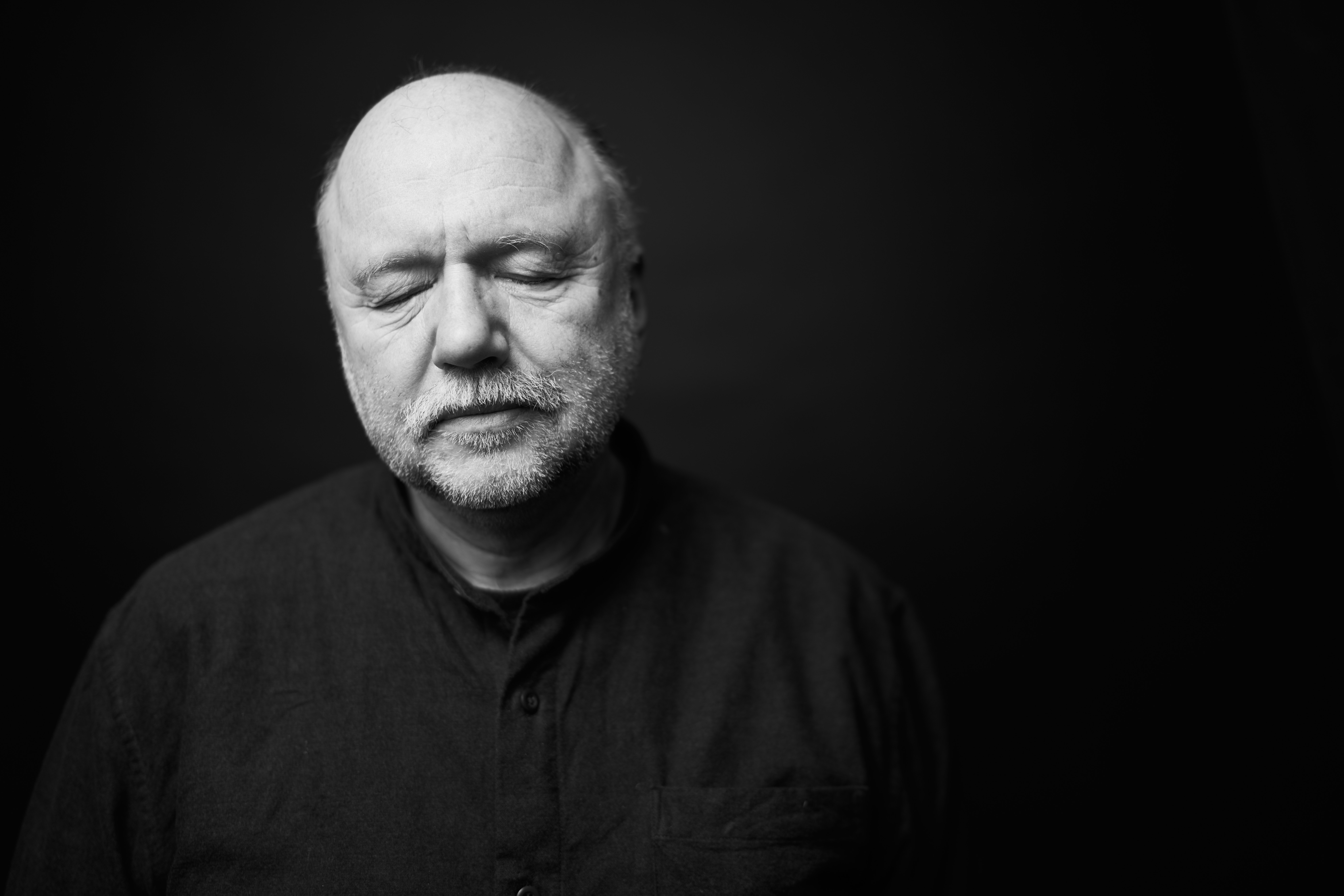
In the last 5 years I got excited by two nonfiction books — Philippe Sands East West Street — a British lawyer and writer. He is an international human rights and genocide specialist. He wrote a big book about two Jewish lawyers: one from Lviv, another one from Zhovkva near Lviv, who practically dedicated their lives to the new terms in legal science. One of them invented and legalized the word “genocide”. The other one invented and legalized the term “crimes against humanity”. It's about their lives with the Second World War in the background and the Nuremberg process in the background, what happened to their relatives, and how they did like each other. There is a real story behind it. I read it as a novel.
The other nonfiction which I read is a novel The Emperor of America, the book of Martin Pollak, an Austrian historian writer, who I know personally. Martin Pollak is incredible because he also wrote nonfiction books about his father, who was a nazi, and about his family. In this sense he was writing biographical nonfiction attached to the history of his family. And I think it was quite painful for him, but he wrote it brilliantly, and it reads like fiction. This is a nonfiction book about the real history of immigration from Bukovina and Galychina to America and Canada, and it’s very interesting because he did a lot of research. He proved all that we knew about this immigration is wrong, and the real reason was a competition between two shipping companies in Germany: Bremen and Hamburg shipping companies. And it’s so interesting how this competition created geopolitical processes all around Europe and in America.
It’s better than fiction because you know this is true. It is written in a popular way — not like a book scientifically difficult to read. It flows very smoothly and it catches your imagination; it sort of forces you in the time when it was happening.
Is it a new genre? Because 100 years ago these kinds of books weren’t there.
They were not there. The topic like this in 19th century books was treated as material for reportage or ethnographic essays. And I have books like this from 1890 - 1907, which I read sometimes just to see how all this stuff was written. It was written by very educated people for very educated people, who were thinking that style should be very intellectual, the presentation should be very complicated, and it should be quite arrogant towards the subject.
Philippe Sands wrote his book in very short chapters. Every chapter creates only one small episode, or detail, or person. It creates rhythm which helps to read a very big novel in a very fast way.
So, architecture is very important. And for writers 100 years ago it was not?
It was just complete text, not divided. It could be 300 pages with sentences covering the whole page.
And not to enjoy it, right?
No, I think only women were allowed to read enjoyable books. There were romance books specially written for enjoyment. But literature for men to enjoy — the first criminal stories — was written much later than the first romance and love stories for women.
Will your books always be fiction?
No, I already wrote a book of nonfiction, for which I did a lot of research. It’s a history of the Emmaus organization which was started in Paris in 1948 to help homeless people after the war, and how it became an international organization with a filial in Ukraine. And then I wrote separate chapters on the history of the Ukrainian part of this organization. I wrote nonfiction essays on the history of hippies, but it is connected with a story I wrote before about Lviv's hippies. My next task in America is to write a nonfiction book. I’m going to write a big book on the history of evolution of knowledge about Ukraine and Ukrainians among ordinary Americans: what did America used to know about Ukraine, what does it know now, and what are the influences this knowledge was gotten from — the influence of mass media, the arts and culture, or journalism.
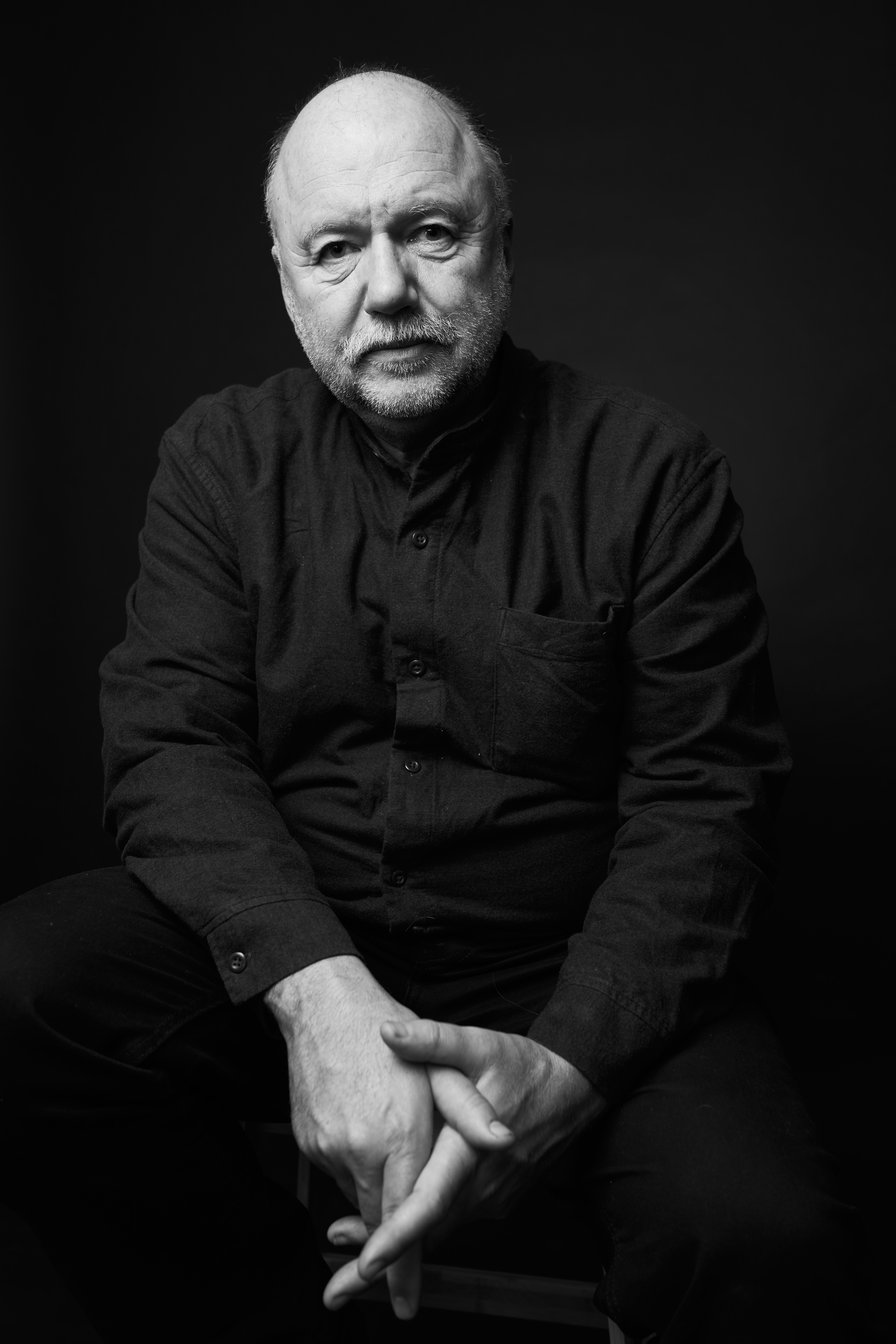
Let’s speak about contemporary literature in Ukraine. I heard something about the “dustbin affair”.
There was on Facebook the real scandal which probably still echoes in some posts. I don’t remember the exact name of the young writer, but he posted a photo of a dustbin with the book of Oksana Zabuzhko — Ukrainian number one female writer — inside. The book was The Field Studies in Ukrainian Sex, which was a cult book in the ’90’s. It was the first one with the elements of feminism, and written very openly about sexual relationships. It’s translated in many languages. This was like an uprisal of a young author against the old authors, and coincided with the several other posts, where young writers were writing that Ukraine’s contemporary literature is in a very poor state and not very popular among readers because the writers in Ukraine write for themselves and for other writers, and they don’t want to write for readers. They write just in order to establish and keep their intellectual status. They are overintellectual; they don’t tell the stories, they’re trying to share their ideas or send messages instead of entertaining the readers. That’s why we have a huge number of translated books on the market, and in the reviews about their favorite books active readers often are not mentioning Ukrainian authors. They write something like a list of 20 favorite books of the year and there are no Ukrainian writers on them.
Did the Ukrainian writers write the wrong literature?
It was the point of this post, which is partially true, but not exactly. Because the older generation of established writers, who actually created Ukrainian contemporary literature, have among themselves some writers who write mass literature: criminal stories, historical novels, romances, drama, etc. This is Iren Rozdobudko, who is originally from Donetsk, but has been already living for 3 decades in Kyiv. It’s Andriy Kokotuha, who is originally from Nizhyn, but lives in Kyiv and who is an author of maybe 100 books. There are also writers who write science fiction and fantasy, and retro detectives which are very popular nowadays. But anyway, among so called established canon figures there are writers who produce intellectual literature where sometimes the quality of Ukrainian literary language used is more important than the message put in the book.
What does its status mean for the writer?
“Poet” in Ukraine was always more than a poet. I mean the authors are considered moral authorities. We shouldn’t forget that there is a moral authority in Ukraine — female-poet Lina Kostenko, who is more than 90 years old, who is for the majority of readers considered the main goddess figure, who is capable of saying what is good and what is bad. So the next generation, which is my generation, 60 years old, is represented by Yurko Andrukhovych and Oksana Zabuzhko, who are considered also more than writers. They are setting trends, but those trends are not followed by other writers and the majority of readers, they are followed by intellectuals, who praise them and who consider them more important than politicians.
So the new generation of writers wants to write for fun?
They want to be read. And they think because the older generation wrote so complicated and not interesting books, the readers are used to reading foreign literature instead of Ukrainian. They are bitter, they are angry, they are trying to please the readers, but massreaders are choosing traditionally foreign literature because they don’t believe in Ukrainian literature anymore. Which is partially true because there is an audience for intellectual literature, but of course if we checked the numbers of copies published and sold, we will see that this audience is very small: 3000-4000 people.
But at the same time we do have Ukrainian bestsellers, which are written for ordinary people. In this situation we have sales like 40-50 thousand copies, sometimes even more. These are already books of so called popular genres, like historical action novels by Vasyl Shkliar, and for him the plot is more important than language — as well as the political side of the main character.
But they don't have an intellectual standing or status?
They don’t need an intellectual status. I think it's some kind of revenge for “what you’ve done in the past”.
Don’t you think it will be a watershed: the new generation is writing totally different things and finding a new public?
In this sense you’re right because nobody writes the same stuff as it is written now by Oksana Zabuzhko or Yurko Andrukhovych. Everybody else, who is younger, is writing more accessible and easier to read books. Even if we talk about contemporary essays — they are becoming lighter, if they are not academic and published in Critica Weekly or Monthly Magazine.
The literature, written by 30-year-old writers, will be different. It will be more market oriented and more story based.
There was one other recent incident about the Ukraine BBC Book Prize. It’s difficult to understand for foreigners like me.
It was a big surprise, but the BBC Ukrainian Service Book of the Year Prize has existed for maybe 10 years, and for many years they didn’t change the personalities who were in the jury. They showed from the very beginning what kind of literature they will notice and select for the prize. This was the same group of writers from the same circle. The publishers and other writers just started ignoring that prize. The head of the jury was always the same, but now after many discussions and complaints several members have changed.
This year everybody was sure that the prize would go to Sofia Andrukhovych for her very big novel “Amadoka”, but in competition in the shortlist there was another big novel which was very good and very cleverly constructed by Maria Matios: the book about history of Bukovyna, a huge family saga. She knows how to write beautifully. And there was an unexpected book by veteran of The Donbas War, a volunteer, who’s nickname in the front was Saigon, and the book is called “Upak”. It’s the village nickname for an old Soviet motorbike which is Jupiter, I think. And this Jupiter motorbike is the main character of this novel. It’s written in surzhyk — a mixture of the Russian and Ukrainian languages, which is spoken in this area, but almost everywhere else in Ukraine as well. There is a lot of swearing and this is not something that can be considered a sample of beautiful Ukrainian language style or something like this. It is accessible, it is easy to read, it is mass literature. It’s quite unusual because it’s realistic, and shows life in the villages in the south or east of Ukraine. It’s very honest and written by a very honest guy.
A lot of people accepted this “best book of the year” this year as a complete change of tradition of The BBC Ukrainian Service Book Prize. So they decided to show that they are more flexible now; they will not stick to the same group of people they were awarding for years and years. As for me, it is probably a result of compromise because there are new members on the jury.
Let’s talk about your newest work.
Yes, it’s the novel “Samson and Nadezhda”. I want to write a series of at least 4 novels about events in Kiev in 1919 in the spring, when the Bolsheviks took over Kyiv for the second time. It’s a retro crime story where crime is the only method to show the way of life during the civil war and the Bolsheviks ruling Kyiv.
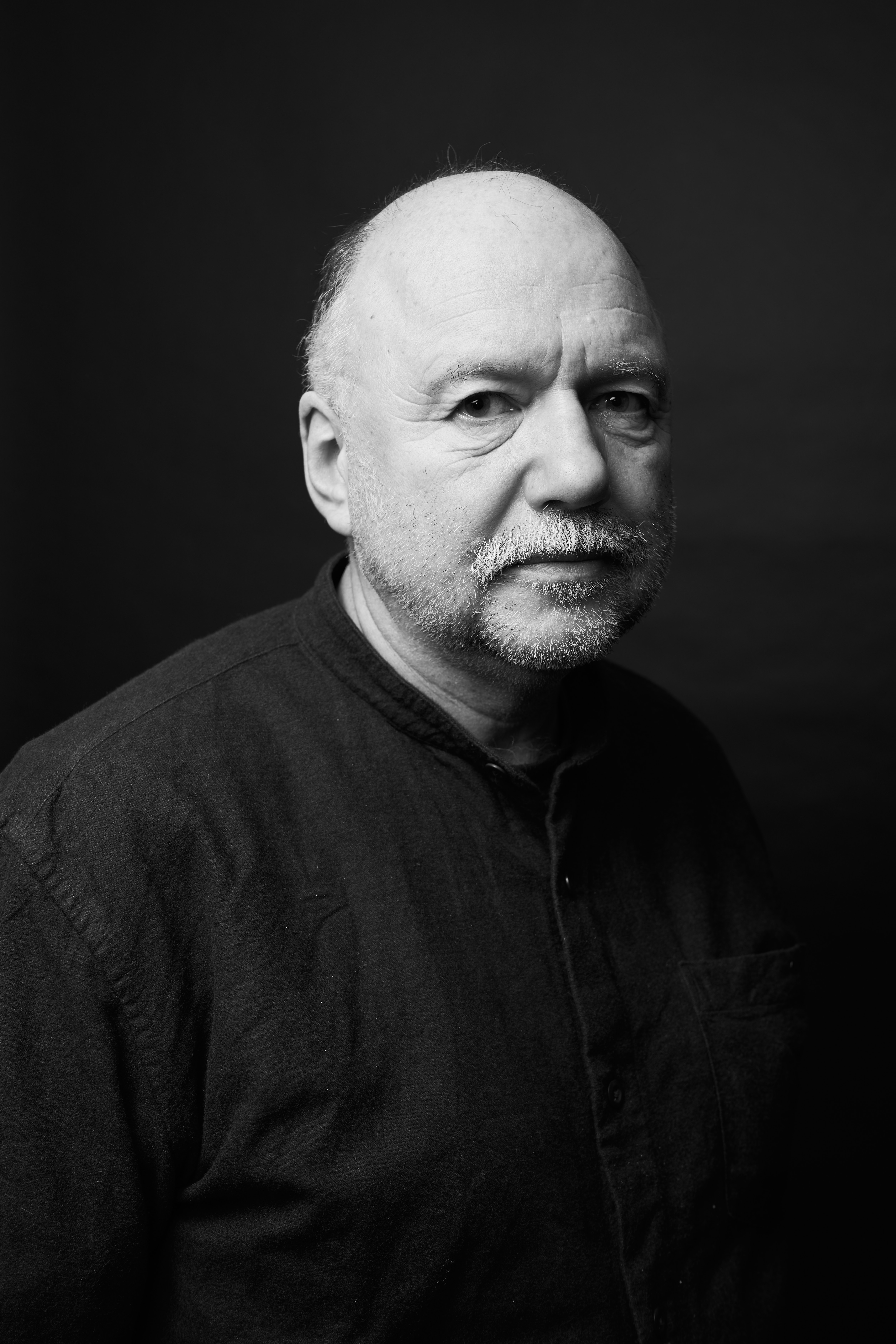
Is it your own version of a historical novel?
Yes. In the first story, all the events I invented, but the circumstances and conditions of life and other historical elements are real. I got access to some archives, and I got interested in these times. So I read a lot. I found a lot of memories, diaries, and other documents. At the same time, it was the beginning of a pandemic, so I didn’t want to start a new heavy novel. I thought that people wanted entertainment, and I wanted to entertain myself because when I write, I entertain myself. So I decided to write several novels like this to see how they will be read.
Four will be enough?
I don’t know, but I have a bit of a difficult situation because I write in different genres. In some countries only one of my genres is present. So when I started writing this novel I thought it would be just for the local market, but I was surprised the book was taken by my Swis publisher and they liked the reviews they got from professional readers. If it gets an audience in the German language, it will be good.
I think it will be. I read a book, and people, let's say, in Holland know the city Kyiv, they know there is Ukraine, and they know a little bit of history around 1917. So this kind of book will affect the perception of Ukraine very much.
At the same time, it is an experiment for me because for the second novel I’m working with one document, which I use as a plot. It’s just one story of three which is a documentary. In the first novel everything is invented: the characters, the events, but the background is true. I’m moving now one step closer to a documentary retro crime novel, and in the third novel maybe I’ll even use more documentary elements.
One last question. You are a writer, but you’re also a reader. Are you just curious what kind of book it will be that you’re writing yourself?
I don’t write a detailed plan of the novel before starting to write it. I have a story — an approximate plan in my head. I have characters. And I’m never sure about the end because I want to find out what happens in the end during the process of writing.
Ari van der Ent – Dutch translator, Slavist, poet and writer, publisher.
Andriy Kurkov – writer, journalist and screenwriter, translated into 37 languages and published in 65 countries. The President of PEN Ukraine